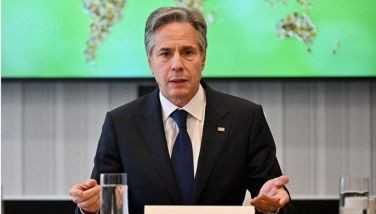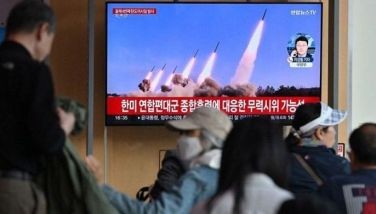Surveillance debate intrudes into Obama's agenda
WASHINGTON — For President Barack Obama, August was supposed to be the time when a major immigration bill landed on his desk.
There was hope for movement on a deficit deal with Republicans, and in the optimistic early days of his second term, even a belief that he would have achieved stricter gun laws.
Instead, Obama finds his fifth year in office beset by distractions, perhaps none with broader implications than the revelation of secret government surveillance programs.
That matter dominated Obama's hourlong news conference Friday. The issues that the White House had hoped to be promoting this summer? They played a diminished role, if at all.
The president set the tone, opening the session by announcing that he would work with Congress to make "appropriate reforms" to the National Security Agency surveillance programs. He also made clear that he had no intention of stopping the daily collection of Americans' phone records.
"Given the history of abuse by governments, it's right to ask questions about surveillance, particularly as technology is reshaping every aspect of our lives," he said, one day before leaving for a weeklong vacation on Martha's Vineyard off the Massachusetts coast.
Even without the NSA disclosures, Obama still would face the same political dynamic with congressional Republicans that stalled progress on immigration, vanquished hope of a long-term budget bargain and defeated gun control and other administration priorities.
It's a reality of any administration that unexpected challenges can arise and shake up the carefully laid plans.
But the scope of the surveillance programs, leaked by former NSA systems analyst Edward Snowden, makes this an issue that's probably will be more than a temporary distraction.
Obama's poll numbers have dropped since the programs became public, and that could hamper his political leverage. The revelations are particularly problematic for Obama because the issue strikes a chord with his base and can't simply be dismissed as partisan-driven.
Seeking to address critics of the secret programs, the president acknowledged at the news conference that he may have underestimated the public's concerns. He outlined steps that he said he hopes will increase public confidence in the programs.
One step is the creation of an independent attorney to argue against the government during secret hearings of the Foreign Intelligence Surveillance Court, which reviews requests for surveillance inside the US
Obama also is forming an outside advisory panel to review US surveillance powers.
The president says he welcomes the debate over government surveillance, though his national security team has said it never intended to tell Americans about the highly classified programs.
"There's no doubt that Mr. Snowden's leaks triggered a much more rapid and passionate response than would have been the case," Obama said.
The NSA revelations have more than intruded on Obama's second-term domestic agenda; they are entangled with some of his foreign policy priorities.
Snowden fled the US first for Hong Kong, a semiautonomous region of China, and then Russia. Both China and Russia have complex and sometimes prickly relationships with the United States.
Russia granted Snowden temporary asylum, leading Obama to cancel plans to meet with Russian President Vladimir Putin in Moscow in September.
While relations with the US and Russia were deteriorating, the Kremlin's decision on Snowden pushed them to a new low and underscored Russia's willingness to thwart the White House's demands.
Leaders in Europe, where many countries have stricter privacy laws than in the US, have criticized the surveillance problems. Obama has been pressed on the issue in meetings and phone calls with European leaders.
He appeared keenly aware of how other countries are viewing the surveillance and privacy debate in the US
"To others around the world, I want to make clear once again that America is not interested in spying on ordinary people," he said. "Our intelligence is focused above all on finding the information that's necessary to protect our people and, in many cases, protect our allies."
The issue of government surveillance had been largely dormant until June, when stories broke in the Guardian newspaper and The Washington Post detailing secret programs to track US phone and Internet records.
Every day, the NSA sweeps up the phone records of all Americans. The program was authorized under the USA Patriot Act, which Congress hurriedly passed after the Sept. 11 attacks.
The NSA says phone records are the only information it collects in bulk under that law. But officials have left open the possibility that it could create similar databases of people's credit card transactions, hotel records and Internet searches.
- Latest
- Trending






























